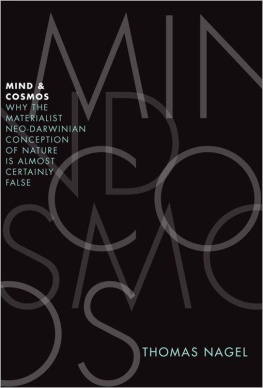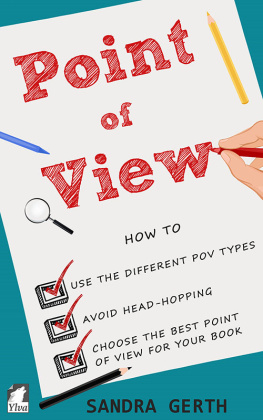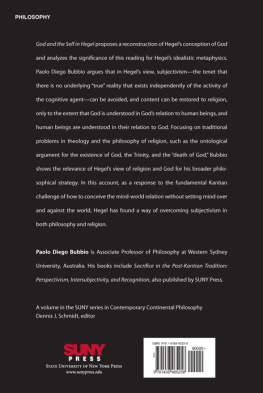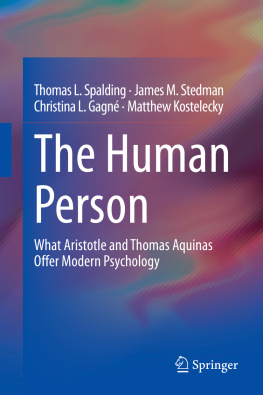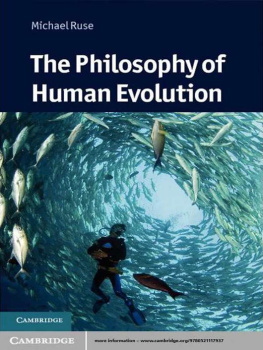THE VIEW FROM NOWHERE
THE VIEW FROM NOWHERE
THOMAS NAGEL

Oxford University Press
Oxford New York Toronto
Delhi Bombay Calcutta Madras Karachi
Petaling Jaya Singapore Hong Kong Tokyo
Nairobi Dar es Salaam Cape Town
Melbourne Auckland
and associated companies in
Berlin Ibadan
Copyright 1986 by Thomas Nagel
First published in 1986 by Oxford University Press, Inc.,
198 Madison Avenue, New York, New York 100164314
First issued as an Oxford University Press paperback, 1989
Oxford is a registered trademark of Oxford University Press
All rights reserved. No part of this publication may be reproduced,
stored in a retrieval system, or transmitted, in any form or by any means,
electronic, mechanical, photocopying, recording, or otherwise,
without the prior permission of Oxford University Press, Inc.
Library of Congress Cataloging-in-Publication Data
Nagel, Thomas.
The view from nowhere.
Bibliography: p. Includes index.
1. ObjectivityAddresses, essays, lectures.
2. Mind and bodyAddresses, essays, lectures.
3. EthicsAddresses, essays, lectures.
4. LifeAdresses, essays, lectures. I. Title.
BD220.N34 1986 121.4 8531002
ISBN 978-0-19-505644-0
Cover painting: The Large Enclosure Near Dresden
by Caspar David Friedrich, 1832. Courtesy
of the Staatliche Kuntsammlungen, Dresden.
25 24 23 22
Printed in the United States of America
To A.L.H.
ACKNOWLEDGMENTS
This book was begun in 197879 during a sabbatical from Princeton University and completed in 198485 during a sabbatical from New York Universitywith the support in each case of a fellowship from the National Endowment for the Humanities.
was presented in August 1981 to an International Philosophy Symposium in Oaxaca sponsored by the Instituto de Investigaciones Filosficas.
Many friends, colleagues, and students have had an influence on my thoughts. Apart from references in the text, let me here thank Rogers Albritton, Thompson Clarke, Ronald Dworkin, Gilbert Harman, Shelly Kagan, Frances Myrna Kamm, John Rawls, Thomas M. Scanlon, Samuel Scheffler, Barry Stroud, Peter Unger, and Susan Wolf. I am particularly grateful to Simon Blackburn and Derek Parfit, each of whom produced valuable comments on the entire manuscript.
New York
February 1985
T.N.
CONTENTS
THE VIEW FROM NOWHERE
I
INTRODUCTION
This book is about a single problem: how to combine the perspective of a particular person inside the world with an objective view of that same world, the person and his viewpoint included. It is a problem that faces every creature with the impulse and the capacity to transcend its particular point of view and to conceive of the world as a whole.
Though it is a single problem, it has many aspects. The difficulty of reconciling the two standpoints arises in the conduct of life as well as in thought. It is the most fundamental issue about morality, knowledge, freedom, the self, and the relation of mind to the physical world. Our response or lack of response to it will substantially determine our conception of the world and of ourselves, and our attitude toward our lives, our actions, and our relations with others. By tracing this element through a number of philosophical problems, I hope to offer a way of seeing them that others may also find natural.
If one could say how the internal and external standpoints are related, how each of them can be developed and modified in order to take the other into account, and how in conjunction they are to govern the thought and action of each person, it would amount to a world view. What I have to say about these questions is not unified enough to deserve that title; one of my claims will be that often the pursuit of a highly unified conception of life and the world leads to philosophical mistakesto false reductions or to the refusal to recognize part of what is real.
Still, I want to describe a way of looking at the world and living in it that is suitable for complex beings without a naturally unified standpoint. It is based on a deliberate effort to juxtapose the internal and external or subjective and objective views at full strength, in order to achieve unification when it is possible and to recognize clearly when it is not. Instead of a unified world view, we get the interplay of these two uneasily related types of conception, and the essentially incompletable effort to reconcile them. The transcendent impulse is both a creative and a destructive force.
I find it natural to regard life and the world in this wayand that includes the conflicts between the standpoints and the discomfort caused by obstacles to their integration. Certain forms of perplexityfor example, about freedom, knowledge, and the meaning of lifeseem to me to embody more insight than any of the supposed solutions to those problems. The perplexities do not result from mistakes about the operation of language or thought, and there is no hope of a Kantian or Wittgensteinian purity, to be attained if we avoid certain tempting missteps in the employment of reason or language.
Objectivity is a method of understanding. It is beliefs and attitudes that are objective in the primary sense. Only derivatively do we call objective the truths that can be arrived at in this way. To acquire a more objective understanding of some aspect of life or the world, we step back from our initial view of it and form a new conception which has that view and its relation to the world as its object. In other words, we place ourselves in the world that is to be understood. The old view then comes to be regarded as an appearance, more subjective than the new view, and correctable or confirmable by reference to it. The process can be repeated, yielding a still more objective conception.
It will not always yield a result, and sometimes it will be thought to yield a result when it really doesnt: then, as Nietzsche warned, one will get a false objectification of an aspect of reality that cannot be better understood from a more objective standpoint. Although there is a connection between objectivity and realityonly the supposition that we and our appearances are parts of a larger reality makes it reasonable to seek understanding by stepping back from the appearances in this waystill not all reality is better understood the more objectively it is viewed. Appearance and perspective are essential parts of what there is, and in some respects they are best understood from a less detached standpoint. Realism underlies the claims of objectivity and detachment, but it supports them only up to a point.
Though I shall for convenience often speak of two standpoints, the subjective and the objective, and though the various places in which this opposition is found have much in common, the distinction between more subjective and more objective views is really a matter of degree, and it covers a wide spectrum. A view or form of thought is more objective than another if it relies less on the specifics of the individuals makeup and position in the world, or on the character of the particular type of creature he is. The wider the range of subjective types to which a form of understanding is accessiblethe less it depends on specific subjective capacitiesthe more objective it is. A standpoint that is objective by comparison with the personal view of one individual may be subjective by comparison with a theoretical standpoint still farther out. The standpoint of morality is more objective than that of private life, but less objective than the standpoint of physics. We may think of reality as a set of concentric spheres, progressively revealed as we detach gradually from the contingencies of the self. This will become clearer when we discuss the interpretation of objectivity in relation to specific areas of life and understanding.
Next page

